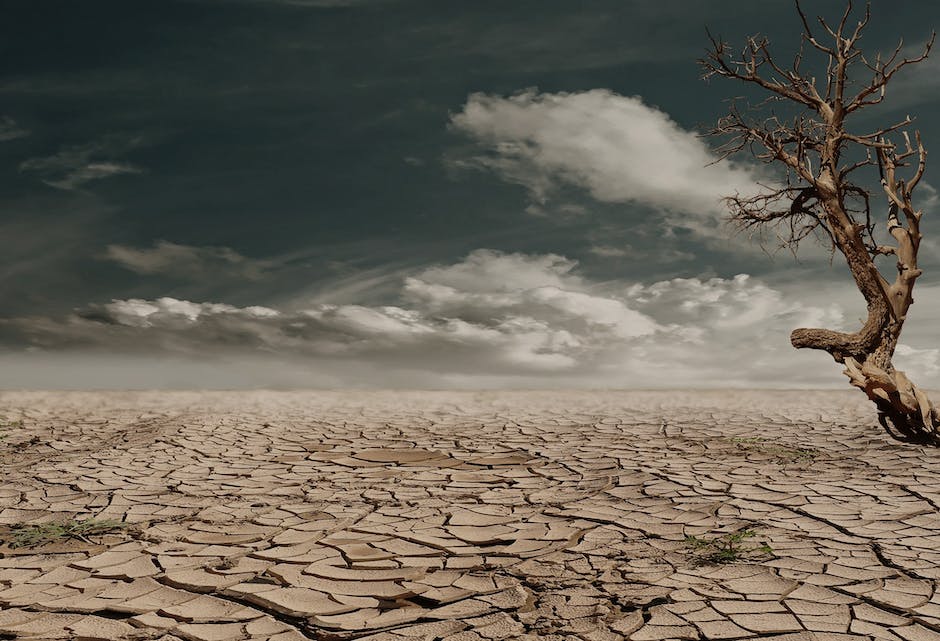Table of Contents
- Introduction
- The Role of Arab Leaders in Promoting Renewable Energy Initiatives
- Strategies Implemented by Arab Leaders to Combat Climate Change
- Challenges Faced by Arab Leaders in Addressing Climate Change Issues
- Collaborative Efforts of Arab Leaders in International Climate Change Negotiations
- Q&A
- Conclusion
“Empowering Arab Leaders to Shape a Sustainable Future”
Introduction
“Arab Leaders and the Fight Against Climate Change: A 2023 Perspective” provides an insightful analysis of the efforts undertaken by Arab leaders in addressing the pressing issue of climate change. This perspective aims to shed light on the actions, policies, and initiatives implemented by Arab countries to mitigate the impacts of climate change and promote sustainable development. By examining the current state of affairs in 2023, this analysis offers a comprehensive overview of the region’s commitment to combatting climate change and its potential implications for the future.
The Role of Arab Leaders in Promoting Renewable Energy Initiatives

The Role of Arab Leaders in Promoting Renewable Energy Initiatives
In recent years, the issue of climate change has become a global concern, with countries around the world taking steps to reduce their carbon emissions and transition to renewable energy sources. Arab leaders, too, have recognized the importance of addressing climate change and have been actively promoting renewable energy initiatives in their respective countries.
One of the key reasons why Arab leaders have been focusing on renewable energy is the abundance of natural resources in the region. The Arab world is blessed with an abundance of sunlight, making solar energy a viable and sustainable option. Additionally, many Arab countries have vast deserts, which can be utilized for the installation of solar panels and the generation of solar power. Arab leaders have recognized this potential and have been investing heavily in solar energy projects.
Saudi Arabia, for example, has launched the ambitious Saudi Vision 2030, which aims to diversify the country’s economy and reduce its dependence on oil. As part of this vision, the country has set a target of generating 50% of its energy from renewable sources by 2030. To achieve this goal, Saudi Arabia has been investing in large-scale solar projects, such as the Mohammed bin Salman Solar Park, which is expected to be one of the largest solar installations in the world.
Similarly, the United Arab Emirates (UAE) has been at the forefront of renewable energy initiatives in the Arab world. The country is home to the Masdar City, a sustainable urban development that aims to be carbon-neutral and powered entirely by renewable energy. The UAE has also invested in large-scale solar and wind projects, such as the Noor Abu Dhabi Solar Plant and the Dubai Clean Energy Strategy 2050, which aims to make Dubai the city with the lowest carbon footprint in the world by 2050.
Arab leaders have also recognized the economic benefits of investing in renewable energy. By diversifying their energy sources, Arab countries can reduce their reliance on fossil fuels and create new job opportunities in the renewable energy sector. This not only helps to address the issue of unemployment but also stimulates economic growth and development.
Furthermore, promoting renewable energy initiatives can enhance the international reputation of Arab countries. By taking proactive steps to combat climate change, Arab leaders are sending a strong message to the international community that they are committed to sustainable development and environmental stewardship. This can attract foreign investment and partnerships, as well as improve diplomatic relations with other countries.
However, despite the progress made by Arab leaders in promoting renewable energy initiatives, there are still challenges that need to be addressed. One of the main challenges is the high upfront cost of renewable energy projects. While the long-term benefits are evident, the initial investment required can be a barrier for many countries, especially those with limited financial resources. Arab leaders need to explore innovative financing mechanisms and partnerships to overcome this challenge.
In conclusion, Arab leaders have been playing a crucial role in promoting renewable energy initiatives in their respective countries. By capitalizing on the region’s natural resources and recognizing the economic and environmental benefits of renewable energy, Arab countries are taking proactive steps to combat climate change. However, challenges such as high upfront costs need to be addressed to ensure the successful implementation of renewable energy projects. With continued commitment and collaboration, Arab leaders can lead the way in the fight against climate change and pave the path for a sustainable future.
Strategies Implemented by Arab Leaders to Combat Climate Change
Strategies Implemented by Arab Leaders to Combat Climate Change
In recent years, the issue of climate change has gained significant attention worldwide. Arab leaders, recognizing the urgent need to address this global challenge, have taken proactive measures to combat climate change and promote sustainable development. This article provides a comprehensive overview of the strategies implemented by Arab leaders in their fight against climate change, offering a 2023 perspective on their progress.
One of the key strategies adopted by Arab leaders is the promotion of renewable energy sources. Recognizing the detrimental impact of fossil fuels on the environment, Arab countries have made substantial investments in renewable energy projects. Solar and wind energy, in particular, have emerged as promising alternatives to traditional energy sources. Arab leaders have implemented policies and incentives to encourage the adoption of renewable energy technologies, such as feed-in tariffs and tax exemptions. These initiatives have not only reduced greenhouse gas emissions but have also created new job opportunities and stimulated economic growth in the region.
Another important strategy employed by Arab leaders is the implementation of energy efficiency measures. Arab countries have recognized the importance of reducing energy consumption and improving energy efficiency in various sectors, including transportation, industry, and buildings. Through the introduction of energy-efficient technologies and the enforcement of strict energy efficiency standards, Arab leaders have successfully reduced energy waste and carbon emissions. Moreover, these measures have resulted in significant cost savings for both individuals and businesses, further incentivizing the adoption of energy-efficient practices.
Water scarcity is a pressing issue in the Arab region, exacerbated by climate change. Arab leaders have implemented innovative strategies to address this challenge, focusing on water conservation and management. Desalination plants have been established to provide a sustainable source of freshwater, while advanced irrigation techniques, such as drip irrigation, have been promoted to minimize water wastage in agriculture. Additionally, awareness campaigns and educational programs have been launched to encourage responsible water usage among the population. These efforts have not only mitigated the impact of climate change on water resources but have also improved water security and resilience in the region.
Furthermore, Arab leaders have recognized the importance of international cooperation in combating climate change. They have actively participated in global climate negotiations and have committed to reducing their greenhouse gas emissions. Arab countries have pledged to contribute to the global effort of limiting global warming to well below 2 degrees Celsius, as outlined in the Paris Agreement. To achieve these targets, Arab leaders have implemented national climate action plans, outlining specific measures to reduce emissions and adapt to the impacts of climate change. These plans encompass a wide range of sectors, including energy, transportation, agriculture, and waste management.
In conclusion, Arab leaders have demonstrated a strong commitment to combatting climate change and promoting sustainable development. Through the implementation of various strategies, such as the promotion of renewable energy, energy efficiency measures, water conservation, and international cooperation, Arab countries have made significant progress in addressing the challenges posed by climate change. However, continuous efforts and collaboration are required to ensure the long-term sustainability of these initiatives. By working together, Arab leaders can pave the way for a greener and more resilient future for their nations and the world.
Challenges Faced by Arab Leaders in Addressing Climate Change Issues
Challenges Faced by Arab Leaders in Addressing Climate Change Issues
As the world grapples with the urgent need to address climate change, Arab leaders face a unique set of challenges in their efforts to combat this global crisis. The Arab region is particularly vulnerable to the impacts of climate change, with its arid landscapes, water scarcity, and dependence on fossil fuels. Arab leaders must navigate these challenges while also considering the economic and political implications of transitioning to a low-carbon economy.
One of the key challenges faced by Arab leaders is the need to balance economic development with environmental sustainability. Many Arab countries rely heavily on oil and gas revenues, which have fueled economic growth and development in the region. However, these industries are major contributors to greenhouse gas emissions and are therefore at odds with efforts to mitigate climate change. Arab leaders must find ways to diversify their economies and reduce their dependence on fossil fuels, while also ensuring continued economic growth and job creation.
Water scarcity is another pressing challenge for Arab leaders in addressing climate change. The Arab region is one of the most water-scarce in the world, with limited freshwater resources and high rates of water consumption. Climate change is expected to exacerbate water scarcity in the region, as rising temperatures and changing rainfall patterns affect water availability. Arab leaders must invest in sustainable water management practices, such as desalination and water recycling, to ensure a reliable supply of water for their populations.
In addition to these environmental challenges, Arab leaders also face political and social obstacles in their efforts to address climate change. The Arab region is characterized by political instability, conflicts, and social unrest, which can hinder the implementation of climate change policies. Arab leaders must navigate these complex political dynamics and engage with various stakeholders, including civil society organizations and the private sector, to build consensus and mobilize action on climate change.
Furthermore, Arab leaders must also address the issue of climate justice. The Arab region has historically contributed relatively little to global greenhouse gas emissions, yet it is disproportionately affected by the impacts of climate change. Arab countries are already experiencing rising temperatures, more frequent heatwaves, and increased water scarcity. Arab leaders must advocate for climate justice on the international stage, calling for greater support and assistance from developed countries to help them adapt to and mitigate the impacts of climate change.
Despite these challenges, Arab leaders have made significant strides in addressing climate change. Many Arab countries have set ambitious renewable energy targets and are investing in solar and wind power projects. They are also implementing policies to promote energy efficiency and reduce greenhouse gas emissions. Arab leaders are increasingly recognizing the economic opportunities of transitioning to a low-carbon economy, such as job creation in the renewable energy sector and the development of green technologies.
In conclusion, Arab leaders face a unique set of challenges in their efforts to address climate change. They must balance economic development with environmental sustainability, navigate water scarcity, overcome political and social obstacles, and advocate for climate justice. However, despite these challenges, Arab leaders are taking significant steps towards a more sustainable future. By investing in renewable energy, promoting energy efficiency, and engaging with various stakeholders, Arab leaders are demonstrating their commitment to combating climate change and ensuring a better future for their people and the planet.
Collaborative Efforts of Arab Leaders in International Climate Change Negotiations
Arab Leaders and the Fight Against Climate Change: A 2023 Perspective
In recent years, the issue of climate change has gained significant attention on the global stage. As the world grapples with the devastating effects of rising temperatures, extreme weather events, and the depletion of natural resources, it has become increasingly clear that urgent action is needed to mitigate the impacts of climate change. Arab leaders have recognized the importance of this issue and have been actively engaged in international climate change negotiations, working collaboratively to find solutions and drive meaningful change.
One of the key collaborative efforts of Arab leaders in international climate change negotiations is the Arab Climate Change Initiative (ACCI). Established in 2008, the ACCI aims to enhance cooperation among Arab countries in addressing climate change and promoting sustainable development. Through the ACCI, Arab leaders have been able to share knowledge, exchange best practices, and coordinate their efforts to tackle climate change collectively.
Arab leaders have also been actively involved in the United Nations Framework Convention on Climate Change (UNFCCC) negotiations. The UNFCCC is an international treaty that aims to stabilize greenhouse gas concentrations in the atmosphere and prevent dangerous anthropogenic interference with the climate system. Arab leaders have been vocal advocates for ambitious climate action and have played a crucial role in shaping global climate policies.
One of the key areas of focus for Arab leaders in international climate change negotiations has been the issue of adaptation. Arab countries are particularly vulnerable to the impacts of climate change, including sea-level rise, water scarcity, and desertification. Recognizing the urgent need to adapt to these challenges, Arab leaders have been pushing for increased support and funding for adaptation measures in developing countries. They have also been working to ensure that the voices and concerns of Arab countries are adequately represented in global adaptation discussions.
Another important aspect of the collaborative efforts of Arab leaders in international climate change negotiations is the promotion of renewable energy. Arab countries have abundant renewable energy resources, including solar and wind power. Arab leaders have been actively promoting the development and deployment of renewable energy technologies as a means to reduce greenhouse gas emissions and transition to a low-carbon economy. They have been working to attract investments in renewable energy projects and have been sharing their experiences and expertise with other countries.
Furthermore, Arab leaders have been engaging with the private sector and civil society to drive climate action. They have recognized the importance of involving all stakeholders in the fight against climate change and have been working to create an enabling environment for collaboration and innovation. Arab leaders have been encouraging the private sector to invest in clean technologies and sustainable practices, while also promoting public awareness and education on climate change issues.
In conclusion, Arab leaders have been actively engaged in international climate change negotiations, working collaboratively to find solutions and drive meaningful change. Through initiatives such as the ACCI and their involvement in the UNFCCC negotiations, Arab leaders have been advocating for ambitious climate action, focusing on adaptation, promoting renewable energy, and engaging with the private sector and civil society. As the world continues to grapple with the challenges of climate change, the collaborative efforts of Arab leaders will be crucial in shaping a sustainable and resilient future for all.
Q&A
1. What is the focus of “Arab Leaders and the Fight Against Climate Change: A 2023 Perspective”?
The focus is on Arab leaders’ efforts in combating climate change in the year 2023.
2. Why is it important for Arab leaders to address climate change?
It is important for Arab leaders to address climate change due to its potential impact on the region’s environment, economy, and population.
3. What are some key initiatives taken by Arab leaders in the fight against climate change?
Some key initiatives taken by Arab leaders include investing in renewable energy, promoting sustainable development, and implementing policies to reduce greenhouse gas emissions.
4. What are the expected outcomes of Arab leaders’ efforts in combating climate change?
The expected outcomes include a reduction in carbon emissions, increased use of renewable energy sources, improved environmental sustainability, and enhanced resilience to climate change impacts in the Arab region.
Conclusion
In conclusion, Arab leaders have made significant efforts in the fight against climate change from a 2023 perspective. They have recognized the urgent need to address environmental challenges and have implemented various initiatives to mitigate the impact of climate change. These efforts include investing in renewable energy sources, adopting sustainable practices, and promoting international cooperation. However, there is still room for improvement, and continued collaboration and commitment are necessary to effectively combat climate change in the Arab region and beyond.




